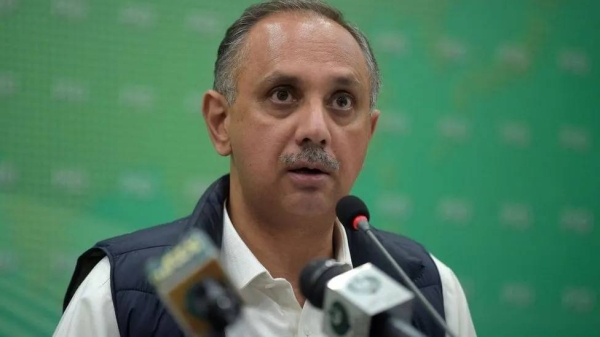
Pakistan’s embattled prime minister, Imran Khan, has claimed that the US “threatened” him and is seeking his removal from office as he faces a no-confidence vote in the coming days that could mean the end of his premiership.
Khan, who opposition parties accuse of bad governance and economic incompetence, had claimed at a rally on Sunday he had a letter that showed a foreign country was conspiring against him and his political opponents working at its behest.
In a live televised address to the nation on Thursday, the same day a confidence debate began in parliament, he said “America threatened me” when talking about the letter before trying to correct himself and saying “it was a foreign country”.
The US government has categorically rejected any involvement in the vote of no confidence and they termed the allegations baseless.
Abdul Basit, a former diplomat, told local media the so-called threatening letter was a diplomatic assessment from Pakistan’s US ambassador and not a threat from the US government.
The opposition parties have put aside their own differences to unite in an anti-Khan coalition as inflation has soared and the prime minister has appeared to lose the backing of the military establishment credited with bringing him to power in the first place. The confidence vote is to be held on 3 April.
At the beginning of his address to the nation, Khan said: “Today, I have to talk about something important about the country’s future. I decided to do this address live because Pakistan is at a defining moment and we have two paths ahead of us.”
He claimed the letter read: “If the vote of no confidence succeeds, we will forgive you. If it does not succeed, and Imran Khan remains the prime minister, then Pakistan will be in a difficult situation.”
Khan said in his address: “I never wanted to be a slave to any country. When I came to power I decided we will have an independent foreign policy.”
He had been expected to make the address on Wednesday but was forced to postpone it until Thursday after a vital coalition party joined the opposition, bringing an end to his majority in the parliament.
The move from the Muttahida Qaumi Movement – Pakistan (MQM-P) puts the expected number of opposition votes against Khan at 177 – five more than the 172 that is needed in the 342-member national assembly to oust him.
The main opposition leaders, Shahbaz Sharif and Bilawal Bhutto Zardari, asked Khan to resign before the vote since he had lost the majority, but as the political temperature is rising in Islamabad, the chances of him doing so are considered slim.
The information minister, Fawad Chaudhry, on Wednesday tweeted: “Prime minister Imran Khan is a player who fights till the last ball. He will not resign.” Khan has been holding rallies of his supporters before the confidence vote.
Khan has also threatened MPs with the wrath of the masses if they vote against him. Kanwar Naveed Jamil, the deputy convener of MQM-P, was harassed and called a traitor by Khan’s supporters in Islamabad international airport on Wednesday after his party parted its ways with the prime minister.
Senator Mustafa Nawaz Khokhar of the opposition Pakistan Peoples party (PPP), the third largest in parliament, said populist politicians around the globe had polarised societies and Khan was no exception.
“Khan over the years has painted the opposition leaders and their parties as corrupt, traitors and labelled them as public enemies. He and his ministers have publicly threatened the dissidents within his own party of severe consequences for not choosing to side with his government in the vote of no confidence,” he said.
“Now they have taken it a step further by harassing and assaulting a member of the former coalition partner who recently decided to part ways with Imran Khan’s government … We wish to see him booted out through democratic and parliamentary procedure of a no-confidence vote. Perhaps Imran Khan should sit back and reflect on his own performance in office rather than whipping up more hatred.”












